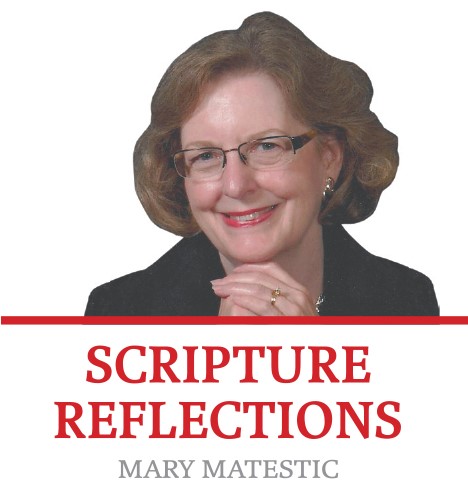Scripture Readings, Sunday, Nov. 14, 2021
In his letter, In Hope We are Saved (2007), Pope Benedict XVI writes about the cultural dissolution of hope beginning with the age of Enlightenment (late 17th and early 18th century), when the industrial development in society displaced any major need for religion. The exodus from the Church really began back then with a false sense of man’s autonomy, self-sufficiency and independence. The individual person became the reference point for all reality. Philosophers, economists and political theorists grappled with the fact that the human mind and reason were ultimate. Therefore, the need for the Divine dwindled, much like today. Atheism became prevalent. Likewise, in the modern era, the idea of the last judgment faded into the background.
Salvation became limited to saving the believer’s own soul. Here is how the thinking looks today: challenged by the injustices in the world, by violence and innocent suffering, the scrambling of truth along with the cynicism of power surely cannot be the work of God. Since there is no God to establish justice, then it seems that mankind is the one selected to establish justice. It is a false perspective, of course. For Benedict, “A world which has to create its own justice is a world without hope.”
Yet, hope is at the core of the eschatological readings that tumble forth from the Scriptures, as we say farewell to the Liturgical Year. We are told about the great tribulation, a hint at the destruction of the Temple in Jerusalem and the scourge of humanity that took place from 60 to 70 AD in Rome. We are told that after the tribulation, the sun will be darkened and the moon will not give light. I love the moon and follow its rising and waning when the clouds are kind enough to part. We are told that the stars will fall from the sky and the powers of heaven will be shaken. Can we picture a dystopian world in rubble?
But it is then that the Son of Man will come on the clouds with power and glory sending out his angels to gather the elect from the north, the south, the east and the west. Did these words make the people who heard them tremble? Oh no. They heard them as signs of hope, that the victory would be theirs in the end through their steadfastness and fidelity to God. Daniel, too, a great prophet of end times, enlightened the people hundreds of years prior. Though the distress of those times, he predicts, will be unsurpassed; it will be a time when the dead who sleep in the dust of the earth will awaken, some will live forever, and some shall be in everlasting horror and disgrace. Further, Daniel sees that those who lead others to justice shall be like the stars forever.
And when will that prophesy be fulfilled? When will God’s justice be realized? It is in Christ who is the very life of God who reveals his face through his Son, the Incarnate Word. “In Christ there is hope proving that there is a God, and that God can create justice in a way that is beyond us.” The readings this weekend are part of the justice Benedict speaks of. For when we look upon the end of times as the justice of God realized, there can only be hope.
But the slippery slope of the eschatological readings is that they involve us — you and me. How? We must be ready, for we all live in the shadow of eternity. How do we live our lives so that when we cross the finish line, we will know the embrace of a God who loves us? What is our insurance for that to happen? Jesus clearly says it: “Learn a lesson from the fig tree.” You can tell the season of the year by the branches. Tender branches and leaves means it is summer. So, too, when we are attentive to those things going on around us and within us, it is time to take stock and be ready.
It is clear, we cannot wait.
We cannot control the stars from falling from the sky nor can we know the day or the hour of Christ’s return. But we can live into Daniel’s prophetic vision: “But the wise shall shine brightly like the splendor of the firmament, and those who lead the many to justice shall be like the stars forever.” (Daniel 12:3)
Brilliant and shining in the darkness. Indeed, in hope we are saved.

